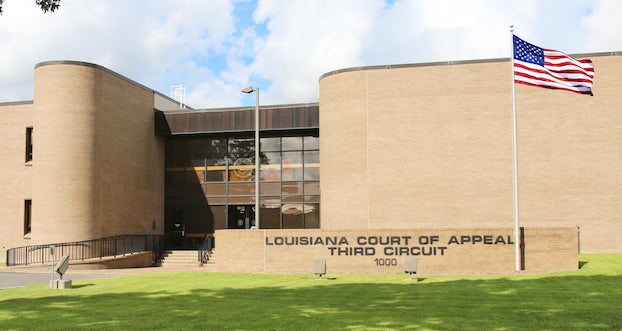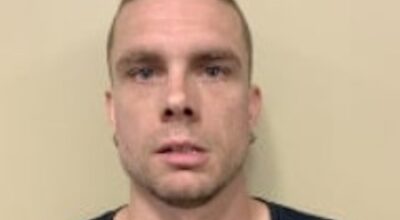New Jersey man pleaded guilty to defrauding local businesses
Published 2:40 pm Saturday, September 7, 2013
A New Jersey man pleaded guilty to defrauding several local businesses nearly a decade ago as part of a nationwide scheme, authorities said.
Thomas N. Salzano, 55, pleaded guilty to five felony counts of theft over $500 and was sentenced to three years’ supervised probation, according to Holly Carter, Calcasieu District Attorney’s Office spokeswoman.
Salzano must pay $45,000 in restitution to six Calcasieu businesses, said David Caldwell, with the state Attorney General’s Office.
He called the operation a Ponzi scheme that defrauded victims of $400 million nationwide.
The Attorney General’s Office and the District Attorney’s Office prosecuted the case together.
Salzano’s telecommunications company, NorVergence, would lease equipment — called “Matrix” boxes — to businesses, telling them the boxes would bundle phone services and Internet and save them up 30 percent, Caldwell said.
NorVergence steeply overcharged for the boxes, which were basically routers, Caldwell said. While the boxes were worth about $1,500, sometimes the company sold them for $33,000 to $100,000, Caldwell said.
At the beginning of the scheme, NorVergence would discount customers with money from new customers. It would then sell the lease agreements on the boxes to financial institutions, Caldwell said.
The financial institutions then came after the businesses seeking payments, Caldwell said. One local business was forced to pay $160,000 to Liberty Bank, based in Des Moines, Iowa, Caldwell said.
The Attorney General’s Office filed charges against the bank in Caddo Parish, and the money was returned to the local business owner, Caldwell said. Once the money was returned, charges were dropped, he said.
“The essence of those charges was what those institutions did was they intentionally looked the other way,” Caldwell said.
Calcasieu was the only parish in Louisiana in which NorVergence preyed on customers, spilling over from Texas shortly before the company went under, Caldwell said.
Salzano was indicted in January 2009 on four counts of money laundering, four counts of conspiracy to commit money laundering and five counts of theft.
The indictment said the crimes happened between May 2004 and February 2008.
Caldwell and Calcasieu District Attorney John DeRosier said Salzano’s company affected 11,000 businesses nationwide, but that Louisiana is the only state to prosecute him.
“Shame on the United States government and all those high-powered regulatory agencies that had the opportunity to stop this scam in its tracks and did not do it,” DeRosier said. “Even doubly so after they learned about the scam and we started investigating it and they still didn’t do anything about it.
“I’m sure it scared off a lot of prosecutors in a lot of jurisdictions because it was so complex and required preparation, requiring travel all across the country. We paid for investigators and attorneys to go up to Washington, New York and different areas. It was very complex.”
Caldwell said authorities agreed to the plea deal because a trial would have entailed flying in victims from across the country and would have cost up to $60,000 and because authorities then would not have been able to seek restitution.
“He is now a convicted felon,” Caldwell said. “In this type of case where you’re dealing with a white-collar case, someone who’s defrauding, what you’ve got to do is you’ve got to get them one time.
“The problem with these guys is they keep operating in the gray area and until somebody actually does something about it, they’re going to continue to do these kinds of things, so we really feel this is a good resolution because now he’s a convicted felon. This is all over the place. This was the subject of congressional hearings at one time and in the national media.”
According to a Federal Trade Commission news release, in 2006 the FTC reached a settlement with Salzano and his brother, Peter J. Salzano, under which the men agreed to make “specific disclosures when pitching products in the future.” Additionally, they were subjected to “$50 million monetary judgments, which are mostly suspended.”
More than 20 states have also reached settlements with the finance companies, the FTC said.
(MGNonline)





